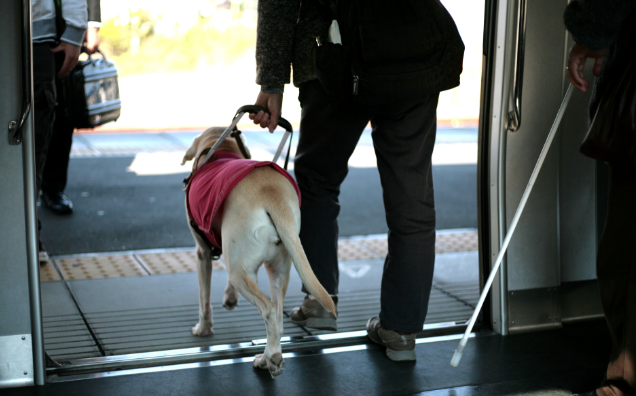- TOP >
- Efforts of Parks and Recreation Foundation
Efforts of Parks and Recreation Foundation 2 Chome-11, Nishi-Shinjuku, Shinjuku-ku, Tokyo
Aiming to create safe and comfortable parks that are appreciated by the public
The Parks and Recreation Foundation currently manages and operates 32 parks, including 17 national parks nationwide, with the aim of contributing to the sound development of citizens and the preservation of the environment, as well as contributing to local communities. We interviewed Mr. Shinichiro Kiba of the Shinjuku Central Park Management Office of the Parks Foundation about the Parks and Recreation Foundation's activities.
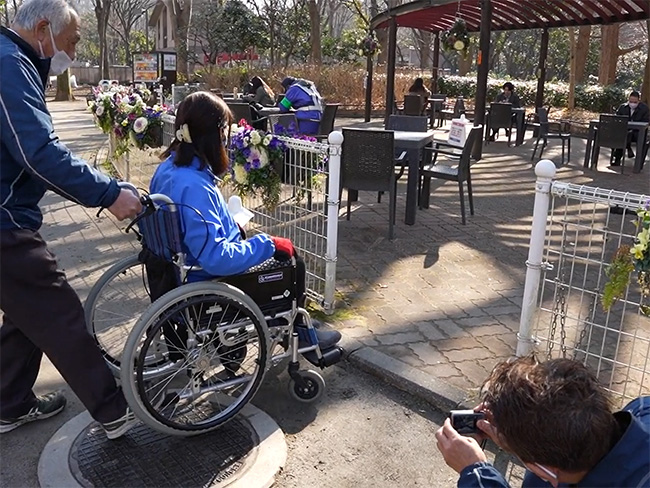
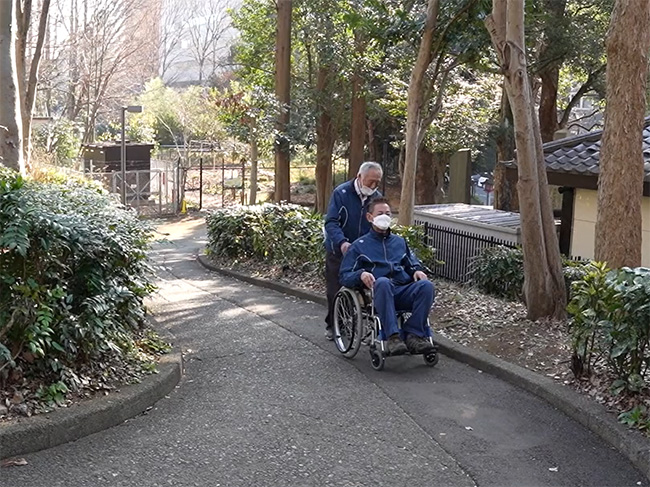
Wheelchair experience through the "Accessible Tourism Promotion Seminar”
In 2021, the Tokyo Metropolitan Government's "Accessible Tourism Promotion Seminar" was used to provide hands-on training for wheelchair users. As an organization, we have always had a deep interest in universal design and have always thought about how to make parks more enjoyable for all visitors. We had known for some time that the Tokyo Metropolitan Government had a dispatch-type training plan, but we had been forced to postpone it due to COVID-19, and we were finally able to apply for and implement the hands-on training this time.
The training was held at Shinjuku Chuo Park, where the participants were divided into three groups of four and took turns playing the role of a wheelchair rider and a caregiver as they moved around the park.
Actually moving around the park in a wheelchair, I noticed many things from the perspective of a wheelchair user, such as steps, slopes (ramps), restrooms, and vending machine purchases. Wheelchair use can be dangerous if basic points are not kept in mind. For example, if the rear wheels are not placed on a step and the wheelchair is lifted, the front wheels can move, leading to a fall accident. In fact, during the training, there were times when participants tried to move forward on a step that was only 1 cm in height and ended up falling forward, and even on a gentle slope, it was difficult to move straight forward depending on the slope and gradient. In addition, there were many things that we would not normally notice, such as the fact that the entrance door to the barrier-free restroom automatically closes, making it inconvenient for wheelchair users unless there is someone to hold the door, and that wheelchair users cannot press the topmost product button on the vending machines installed in the park.
After the wheelchair experience, the training was conducted in a classroom setting. The training was conducted in the form of taking pictures along the way in the park, and sharing information on areas of concern or inconvenience with each other's groups and exchanging opinions. The dispatched lecturer advised the participants to prepare a recommended tour route around the park for wheelchair users in advance and to provide barrier-free information not only inside the park but also before visiting the park. We also recognized that it is very important to know how to get to the park from the nearest station. I believe that this training was a great success in that all staff members were able to share and confirm the current issues.


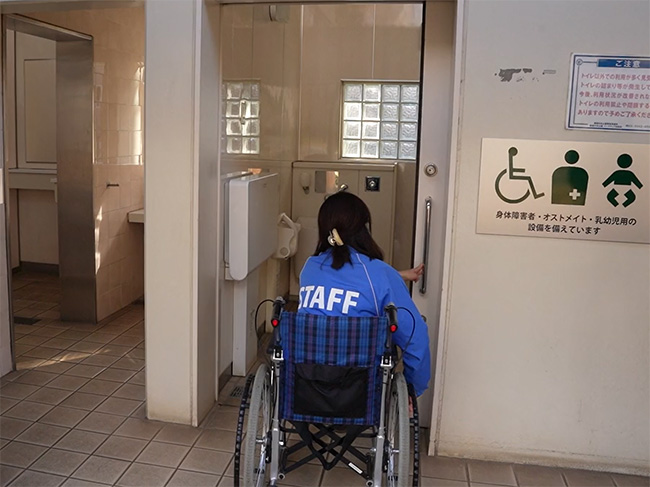
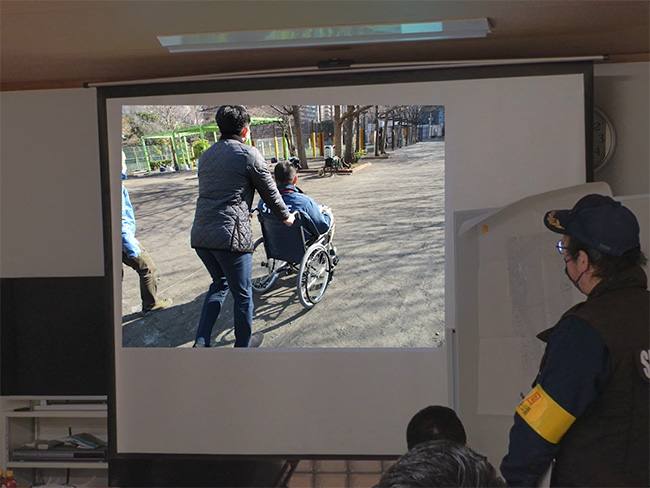
To make the parks enjoyable for all
Although we focused on the experience of using a wheelchair this time, we want all visitors to enjoy the park. We are always thinking of ways to make Japanese parks places of relaxation for people with small children, pregnant women, people with visual or hearing impairments, and foreigners who do not understand Japanese.
A writing board is available at the park office and can be used at any time if needed. In addition, as part of our efforts for foreign visitors, we have prepared park maps in English, Chinese, and Korean, and broadcasts in the park are also made in four languages. We also have staff members who can provide information in English and actually communicate with foreign visitors to the park.
An "inclusive playground" is scheduled to be installed this fall. Inclusive playground equipment is equipment that allows children with and without physical disabilities to play together.
With the introduction of this playground equipment, we hope to use this opportunity to make the park an enjoyable place to play and a place where everyone can grow and develop together.


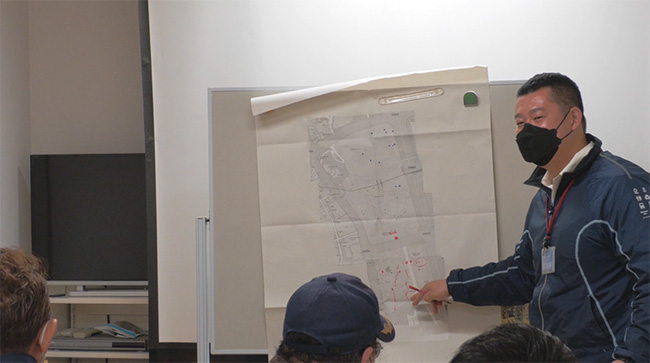
Customer service with "Omotenashi” Spirit
We at the Parks and Recreation Foundation value the spirit of Omotenashi (hospitality). We will continue our efforts to improve the hospitality of our staff through training programs such as this one. In order to practice "Barrier-Free Mind," we will conduct training by hospitality instructors and hospitality training for the physically challenged, as well as promote the acquisition of service assistant certification and service hospitality certification, which will be utilized in our daily work.

 social media accounts
social media accounts
Tokyo, a city that is accessible everywhere to anyone.
Sightseeing where you wish, as you wish.
This ability to travel anywhere you please makes life that much richer.
Tokyo welcomes your visit.
Here you can encounter tradition,
history, culture, nature, technology,
and, best of all, smiling faces.
Making tourism closer and more
enjoyable through accessible tourism.




